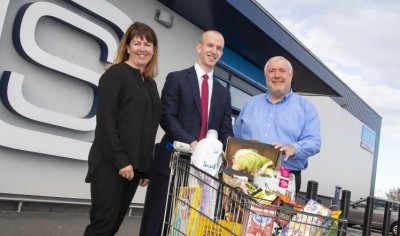Saucy waste management trial pays off

Panesar had been putting most of its waste into a general waste compactor, including jarred products that had not passed the company’s stringent safety and contamination testing procedures. This had been a relatively expensive process and had not taken advantage of the potential for recycling glass.
Biffa proposed that the manufacturer send the surplus product to an anaerobic digestion (AD) facility, where it could be sieved to remove glass or metal lids. Once separated, the packaging could then be recycled.
Reducing waste
Following the trial’s success, the approach is now being adopted company-wide, drastically reducing the quantity of waste Panesar needs to send to landfill and halving its previous costs in this area.
“We are a major employer in the area and have a long-standing partnership with Biffa, which has always provided a high-quality, responsive service,” said Panesar Foods director Jas Panesar.
“Our aim through this exercise was to maximise the quantity of waste we recycled to reflect our status as a responsible manufacturer. Biffa came up with a novel solution, which has done just that and, as we seek to further expand the business, we know we are doing all we can to cut our environmental footprint.”
‘Environmental responsibilities’
Jason Burrows, regional account manager at Biffa, said: “Panesar Foods is a company that takes its environmental responsibilities very seriously, but the nature of the waste produced by the company necessitated a different approach.
“The separation process to remove the glass and metal from the food waste and then process that food waste into energy via AD has enabled Panesar to reduce its waste disposal costs and make a contribution towards sustainable energy generation.”
Panesar Foods’ three West Midlands plants make own-label and branded items.

















